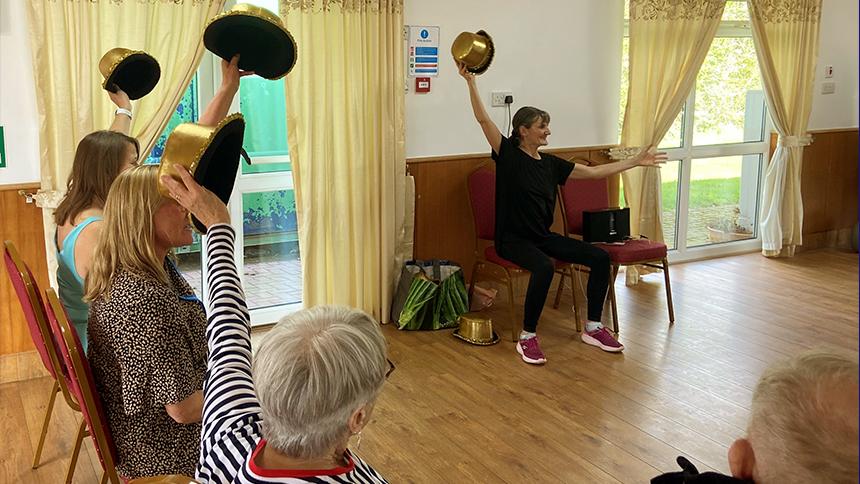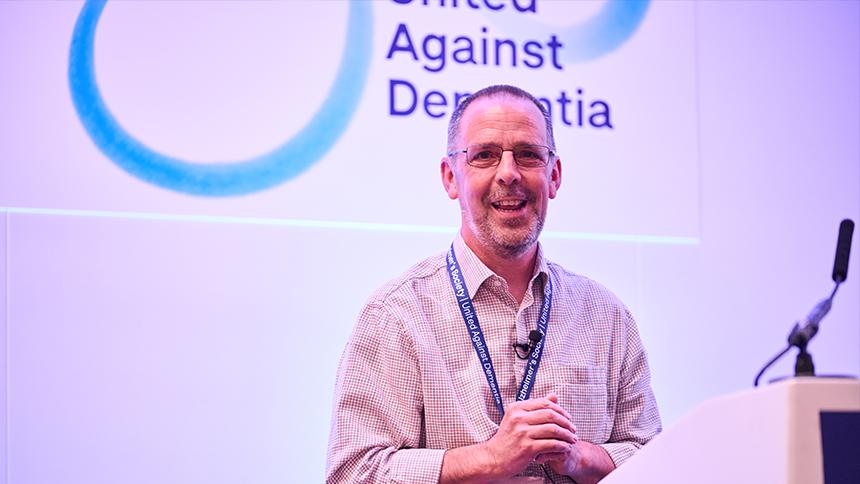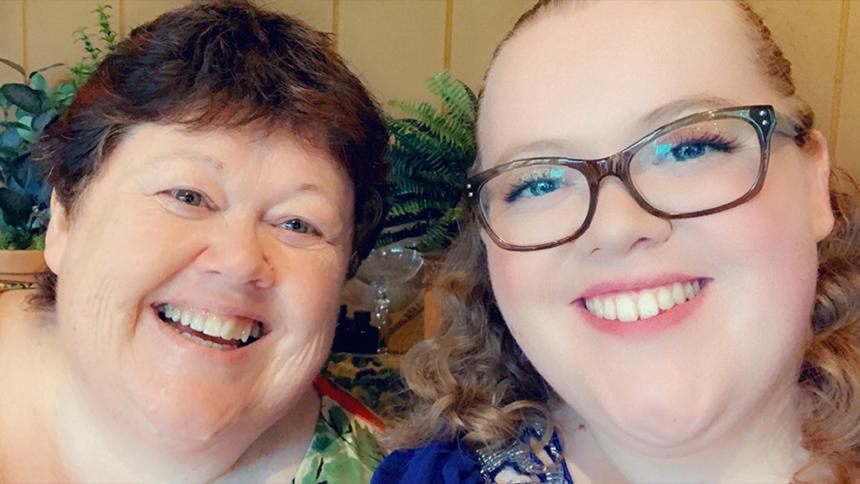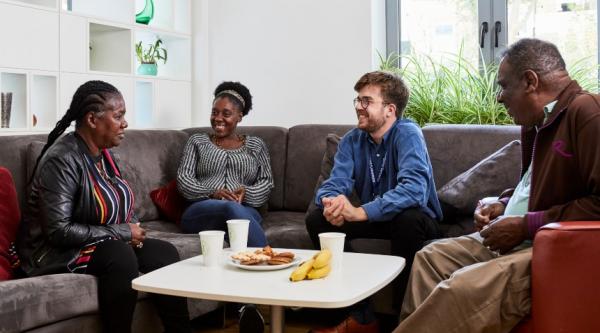Integrated care systems want to improve support for people affected by dementia
Health and care services in Northamptonshire are working in new partnerships so that people affected by dementia can get the right help at the right time.
Across England, the way that health and care services are planned and delivered is changing.
NHS England has established 42 integrated care systems – partnerships between the NHS, local authorities, voluntary organisations and others – to improve the lives of people in their area, including those affected by dementia.
In Northamptonshire, the launch of the Northamptonshire Integrated Care System (NICS) has formalised some existing arrangements while simplifying how organisations work together and make decisions.
Alzheimer’s Society is part of a large team of organisations and services that are working together to help people stay well, independent and at home for longer.

Happy and healthy
Giles West, a deputy director at Northamptonshire Healthcare NHS Foundation Trust, has been leading on establishing the new approach.
‘Listening to the experiences of our older people, the greatest gap was the failure to consider the holistic needs of the person and their carers, to understand what mattered to them and what they wanted to achieve,’ he says.
As part of the integrated care system, groups that offer peer and professional support free of charge have been launched. More of the time of GPs, pharmacists, specialist nurses and others has also been freed up to support people affected by dementia.

Giles.
Each area of Northamptonshire has a designated Age Well team, made up of professionals with different areas of expertise, including dementia support workers from Alzheimer’s Society. Services such as befriending and a memory hub that offers activities are also available.
‘We focused on how we could help our older population feel happy, healthy, and able to maintain their independence, by bringing staff from across different organisations to work collectively for the person,’ says Giles.
‘We will continue to listen, adapt and innovate, to help people live their best lives as they age.’
Support and strategies
Being part of NICS has allowed the Society to support people who wouldn’t have contacted us previously, explains Diane Jenkins, our Dementia Connect Local Services Manager for Northamptonshire.
‘Dementia support from Alzheimer’s Society in Northamptonshire has been minimal over the last few years, and this new way of integrated working is now embedding dementia support in the heart of services,’ she says.
‘This means more people have the opportunity to receive dementia support, information and advice than ever before.’
The outcomes so far have been positive.
‘We’re increasing dementia awareness and knowledge in GP practices, which is good for people pre- and post-diagnosis, and we’re giving people support and strategies to prevent further escalation,’ she says.
Best outcomes
So how does this Society support work in practice? Suzanne Whatling is a Dementia Support Worker who operates as a link worker in one of the Age Well teams.
‘People with dementia are referred to us from all angles – the GP, a district nursing team, a social prescribing service,’ she explains.

Suzanne and Charlotte.
Suzanne provides both remote and face-to-face support, including joint visits with other professionals from the Age Well team. This can cover anything from assessments for minor equipment in the home to questions about respite care and end of life.
‘I visited a carer a couple of weeks ago to support with strategies for coping with a person’s incontinence,’ she says. ‘I’ve managed to get another person with dementia into a community group, and am trying to organise a befriending visit for him.’
Suzanne is also involved when a person with dementia has their case reviewed, to try and stop them declining and having to go into hospital.
‘I’ll be there with the likes of Age UK, Northamptonshire Carers, and the adult social services team, and we’ll agree which of us is best placed to support,’ she says.
For Suzanne, the collaboration with other organisations has been very positive.
‘I was at a local authority for 25 years and joint working was very poor, but this is at the forefront and is amazing to be part of,’ she says.
‘Previously, the physical side of things could get disregarded because someone has dementia, but now we’re working holistically.
‘People want to do it and want to achieve the best outcomes for their patients.’

Angela and her dad.
Full extent
Angela Locicero received support from Age UK about daycare options for her dad, who was diagnosed with dementia in 2014. They also referred her to the Society, to see what other support could be offered, and the family was visited by Charlotte Murray, Dementia Support Worker.
‘Charlotte came to Dad’s home and gave us good insight about dementia,’ says Angela.
‘She went through behaviour changes, how to keep him safe, and advice about eating and swallowing. Things that we didn’t really know, even after eight years.
‘It’s good to know the full extent of what can happen later down the line, then we can help Dad the best we can.’
Angela was impressed with the joined-up working and support that this approach was able to provide. ‘It all linked together quite nicely,’ she says. ‘It’s just a very good service.’
How can you help?
£28 could run our online community, Talking Point, for one hour.


